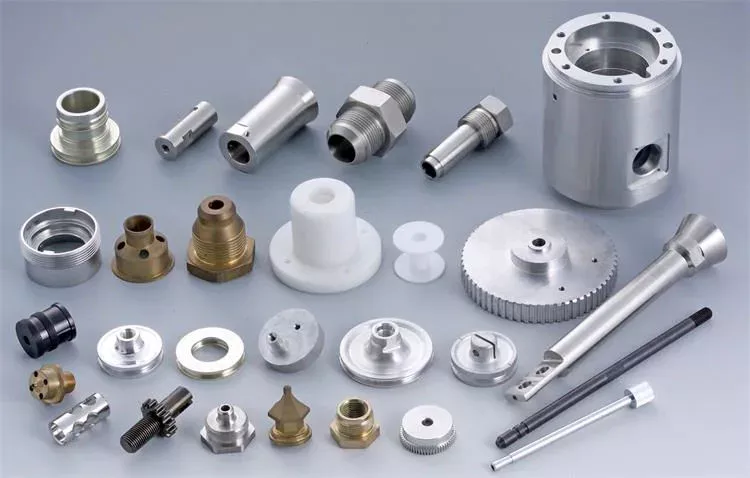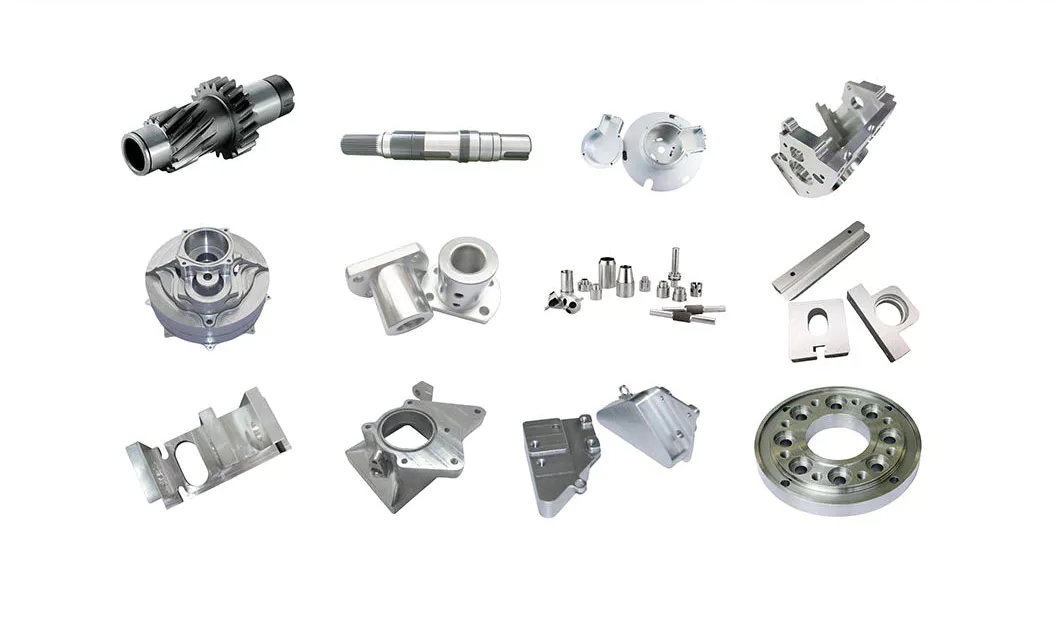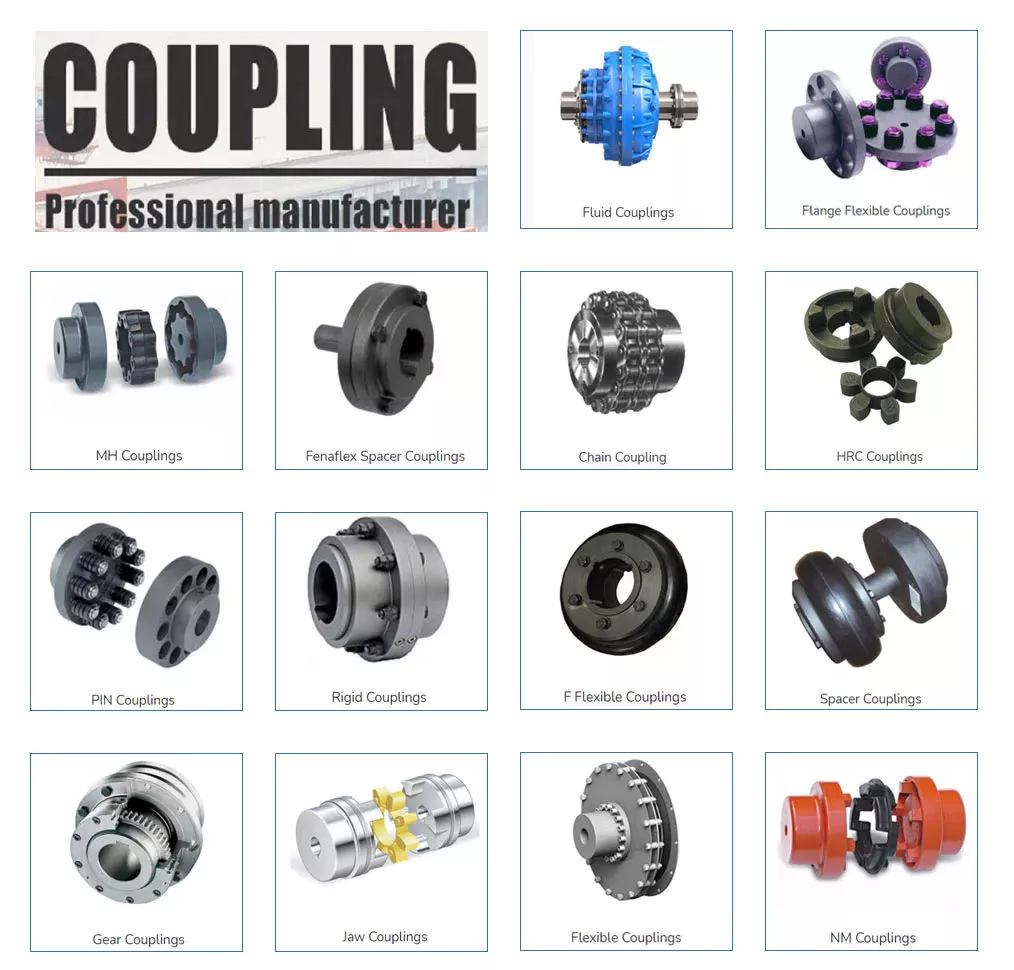Product Description
Evergreen Machinery’s Technology Terms:
– Certification: ISO9001 & TS 16949 Certified
– Products Material Standard: ISO, GB, ASTM, SAE, ISO, EN, DIN, JIS, BS
– Product weight range: 0.05 kg ~ 1000kg
– Main process: Hot forging, Cold forging, Die forging…etc
– Further Production Process: Deburring, Sandblasting, Machining, Heat Treatment, Surface treatment, etc.
– Material Available:
– Carbon Steel: 10#, 15#, 20#, 25#, 30#, 35#, 40#, 45#, 50#, 55#…etc.
– Alloy Steel: 15Mn, 16Mn, 40Cr, 42CrMo…and other alloy steel.
– Stainless Steel: SUS304, SUS316, SUS316L, etc
– Aluminum: 6061 T6, 6063 T6, 2A17
– Drawings: 2D & 3D Drawings (Igs, PDF, JPEG, DWG, CAXA, UG, Stp…etc.) could be made and provided based on the samples.
Evergreen Machinery’s Tooling and Mold:
– CZPT life: Semi-permanent
– Tooling Leadtime: 2 weeks, depending on the structure and size
– Tooling & CZPT maintenance: Be responsible by CZPT Machinery
Evergreen Machinery’s Quality control:
– Defective products rate: ≤ 0.1%.
– Quality Control: Sample and pilot run will be given 100% inspection during production and before shipment, Sample check for mass production according to ISO standard or customer requirements
– Test equipment: Spectrum Analyzer, CMM, Hardness test equipment, Tension test machine
– After-sales services: Available
– Quality situation: Traceable
Why HangZhou CZPT Machinery?
– Rich experience: 25 years of experience in casting and forging for European and U.S. markets.
– OEM & ODM products application: Auto parts, Engine parts, Agriculture equipment parts, Train parts, Valve, Pump… etc
– Material: 1> Grey Iron: HT100/HT150/HT200/HT250/HT300/HT350
2>Ductile Iron: QT400/QT450/QT500/QT600
– Material Standard: ASTM, SAE, JIS, BS, DIN, ISO, GB
– Product weight: 0.05kg ~1000kg
– Machining equipment: CNC, Lathe machine, Milling machine, Drilling machine… etc
– Test equipment: Optical Spectrum Analyzer, CMM, Hardness test equipment, Tensile test machine
– Surface treatment: Blacking, Polishing, Anodize, Painting, Chrome plating, Zinc plating,Nickel plating, Tinting, Power coating, E-coating… etc
– Applied software for specification drawings: Pro/E, Auto CAD, Solidwork, CAXA, UG… etc
– Further available process: Turning, cutting, milling, grinding, drilling, reaming, welding, stamping and threading
(forging workshop)
(Evergreen Machinery’s Patents)
What can CZPT Machinery provide, what projects can you complete through us?
Our main business in metal products, and our product range mainly covers Metal work, Aluminum Casting, Investment/Precision casting steel, Sand casting, Forging…etc.
These products used in Wind power, Turbine, heavy duty Truck, Train, Hydraulic Cylinder, Engine, Agriculture equipment, Lighting, Marine and Mining machinery, Hardware, CZPT breeding, etc.
(forging workshop)
Evergreen Machinery’s Capability & Capacity:
– Capacity: 1>Al die casting: 3000~4000 ton per year
2>Sand casting: 10000 ton per year
3>Investment casting: 2000 ton per year
4> Forging: 8000 ton per year
– Certification: EN15085 & ISO3834 welding certificate
– Machining equipment: CNC, Lathe machine, Milling machine, Drilling machine, Grinding machine… etc
– Test equipment: Optical Spectrum Analyzer, CMM, Hardness test equipment, Tensile test machine
– Surface treatment: Powder coating, Anodization, Chrome plating, Painting, Sand blasting, Galvanization
(Raw Material Warehouse)
Evergreen Machinery’s Quality & Service:
Evergreen Machinery’s quality philosophy is “No Compromise“.
We have a diverse customer range CZPT over 30 countries and regions, Germany, USA, Australia & Japan are our main markets. We’re committed to serve our customer by providing quality products and services. For our original customers, we offer products and services that meet or exceed their expectations whenever needed. For our emerging market customers, we provide value-added, affordable products whenever possible.
Welcome to visit CZPT Machinery (the picture shows the customer and our general manager Walt Wang)
| PROCESS TYPE | MATERIAL | STHangZhouRD | |
| Sand Casting | Green Sand | Grey Iron, Ductile Iron, Malleable Iron, Brass, Bronze | ISO GB ASTM SAE BS JIS DIN |
| Furan Resin Sand | |||
| Cold Harden Resin Sand | |||
| Investment casting | Water galss casting | Stainless Steel, Carbon Steel, Special Alloy Steel Bronze, Brass, Aluminum | |
| Lost wax casting | |||
| Forging | Hot Forging | Stainless Steel, Carbon Steel, Alloy Streel, Brass, Aluminum | |
| Warm Forging | |||
| Cold Forging | |||
| Machining and other further processiong | Stamping, cutting, welding, polishing,sand blasting…… | All metal material | |
Who We Serve? You are our quality customer!
The Applications of Our OEM Custom Metal Parts Engine parts, Auto parts, Machinery Parts, Rail Train parts, Truck Parts,Tractor Parts, Construction Equipment, Agriculture Equipment,Other industrial fields.
(Great cooperation with Canadian Partner!)
(Great cooperation with Russian Partner!)
Evergreen Machinery’s FAQ:
Q: Do you make customized products or finished parts?
A: Yes,all parts are not in stock, custom made according to customer’s drawings or samples! If you have any parts to be made, please feel free to send your drawings/samples to us.
Q: Will my drawing be safe after you get it?
A: Yes, we will not release your design to third party unless with your permission. And we can sign the NDA before you send the drawing.
Q: What is the MOQ?
A: Usually we don’t have a MOQ, but the more, the cheaper. Besides, we are happy to make prototype part or sample for clients to ensure quality standard.
Q: Whether some samples can be provided?
A: Yes, just need some sample cost, we will return it back when proceed into mass production. If a molded is needed, we will charge the mold fee before starting. Then the mold belongs to customer.
Q: What’s your products range?
A: OEM & ODM products range: Auto parts, Truck Parts, Engine parts, Agriculture equipment parts, Train parts, Hardware, etc.
Q: What’s machining machines do you have?
A: CNC, Lathe machine, Milling machine, Drilling machine, and so on;
Q: Do you have any test equipment?
A: Optical Spectrum Analyzer, CMM, Hardness test equipment, Tensile test machine;
Q: How to deal with it when they are found to be in poor quality?
A: Please rest assured that all our products are QC inspected and accepted with inspection report before delivery and generally there will be no non-conformance; in case of non-conformance, please contact us immediately, take some pictures or videos, we will check the problems and have them reworked or repaired or replaced at the first time, the resulting transportation costs will be borne by our company.
Types of Splines
There are 4 types of splines: Involute, Parallel key, helical, and ball. Learn about their characteristics. And, if you’re not sure what they are, you can always request a quotation. These splines are commonly used for building special machinery, repair jobs, and other applications. The CZPT Manufacturing Company manufactures these shafts. It is a specialty manufacturer and we welcome your business.
Involute splines
The involute spline provides a more rigid and durable structure, and is available in a variety of diameters and spline counts. Generally, steel, carbon steel, or titanium are used as raw materials. Other materials, such as carbon fiber, may be suitable. However, titanium can be difficult to produce, so some manufacturers make splines using other constituents.
When splines are used in shafts, they prevent parts from separating during operation. These features make them an ideal choice for securing mechanical assemblies. Splines with inward-curving grooves do not have sharp corners and are therefore less likely to break or separate while they are in operation. These properties help them to withstand high-speed operations, such as braking, accelerating, and reversing.
A male spline is fitted with an externally-oriented face, and a female spline is inserted through the center. The teeth of the male spline typically have chamfered tips to provide clearance with the transition area. The radii and width of the teeth of a male spline are typically larger than those of a female spline. These specifications are specified in ANSI or DIN design manuals.
The effective tooth thickness of a spline depends on the involute profile error and the lead error. Also, the spacing of the spline teeth and keyways can affect the effective tooth thickness. Involute splines in a splined shaft are designed so that at least 25 percent of the spline teeth engage during coupling, which results in a uniform distribution of load and wear on the spline.
Parallel key splines
A parallel splined shaft has a helix of equal-sized grooves around its circumference. These grooves are generally parallel or involute. Splines minimize stress concentrations in stationary joints and allow linear and rotary motion. Splines may be cut or cold-rolled. Cold-rolled splines have more strength than cut spines and are often used in applications that require high strength, accuracy, and a smooth surface.
A parallel key splined shaft features grooves and keys that are parallel to the axis of the shaft. This design is best suited for applications where load bearing is a primary concern and a smooth motion is needed. A parallel key splined shaft can be made from alloy steels, which are iron-based alloys that may also contain chromium, nickel, molybdenum, copper, or other alloying materials.
A splined shaft can be used to transmit torque and provide anti-rotation when operating as a linear guide. These shafts have square profiles that match up with grooves in a mating piece and transmit torque and rotation. They can also be easily changed in length, and are commonly used in aerospace. Its reliability and fatigue life make it an excellent choice for many applications.
The main difference between a parallel key splined shaft and a keyed shaft is that the former offers more flexibility. They lack slots, which reduce torque-transmitting capacity. Splines offer equal load distribution along the gear teeth, which translates into a longer fatigue life for the shaft. In agricultural applications, shaft life is essential. Agricultural equipment, for example, requires the ability to function at high speeds for extended periods of time.
Involute helical splines
Involute splines are a common design for splined shafts. They are the most commonly used type of splined shaft and feature equal spacing among their teeth. The teeth of this design are also shorter than those of the parallel spline shaft, reducing stress concentration. These splines can be used to transmit power to floating or permanently fixed gears, and reduce stress concentrations in the stationary joint. Involute splines are the most common type of splined shaft, and are widely used for a variety of applications in automotive, machine tools, and more.
Involute helical spline shafts are ideal for applications involving axial motion and rotation. They allow for face coupling engagement and disengagement. This design also allows for a larger diameter than a parallel spline shaft. The result is a highly efficient gearbox. Besides being durable, splines can also be used for other applications involving torque and energy transfer.
A new statistical model can be used to determine the number of teeth that engage for a given load. These splines are characterized by a tight fit at the major diameters, thereby transferring concentricity from the shaft to the female spline. A male spline has chamfered tips for clearance with the transition area. ANSI and DIN design manuals specify the different classes of fit.
The design of involute helical splines is similar to that of gears, and their ridges or teeth are matched with the corresponding grooves in a mating piece. It enables torque and rotation to be transferred to a mate piece while maintaining alignment of the 2 components. Different types of splines are used in different applications. Different splines can have different levels of tooth height.
Involute ball splines
When splines are used, they allow the shaft and hub to engage evenly over the shaft’s entire circumference. Because the teeth are evenly spaced, the load that they can transfer is uniform and their position is always the same regardless of shaft length. Whether the shaft is used to transmit torque or to transmit power, splines are a great choice. They provide maximum strength and allow for linear or rotary motion.
There are 3 basic types of splines: helical, crown, and ball. Crown splines feature equally spaced grooves. Crown splines feature involute sides and parallel sides. Helical splines use involute teeth and are often used in small diameter shafts. Ball splines contain a ball bearing inside the splined shaft to facilitate rotary motion and minimize stress concentration in stationary joints.
The 2 types of splines are classified under the ANSI classes of fit. Fillet root splines have teeth that mesh along the longitudinal axis of rotation. Flat root splines have similar teeth, but are intended to optimize strength for short-term use. Both types of splines are important for ensuring the shaft aligns properly and is not misaligned.
The friction coefficient of the hub is a complex process. When the hub is off-center, the center moves in predictable but irregular motion. Moreover, when the shaft is centered, the center may oscillate between being centered and being off-center. To compensate for this, the torque must be adequate to keep the shaft in its axis during all rotation angles. While straight-sided splines provide similar centering, they have lower misalignment load factors.
Keyed shafts
Essentially, splined shafts have teeth or ridges that fit together to transfer torque. Because splines are not as tall as involute gears, they offer uniform torque transfer. Additionally, they provide the opportunity for torque and rotational changes and improve wear resistance. In addition to their durability, splined shafts are popular in the aerospace industry and provide increased reliability and fatigue life.
Keyed shafts are available in different materials, lengths, and diameters. When used in high-power drive applications, they offer higher torque and rotational speeds. The higher torque they produce helps them deliver power to the gearbox. However, they are not as durable as splined shafts, which is why the latter is usually preferred in these applications. And while they’re more expensive, they’re equally effective when it comes to torque delivery.
Parallel keyed shafts have separate profiles and ridges and are used in applications requiring accuracy and precision. Keyed shafts with rolled splines are 35% stronger than cut splines and are used where precision is essential. These splines also have a smooth finish, which can make them a good choice for precision applications. They also work well with gears and other mechanical systems that require accurate torque transfer.
Carbon steel is another material used for splined shafts. Carbon steel is known for its malleability, and its shallow carbon content helps create reliable motion. However, if you’re looking for something more durable, consider ferrous steel. This type contains metals such as nickel, chromium, and molybdenum. And it’s important to remember that carbon steel is not the only material to consider.

